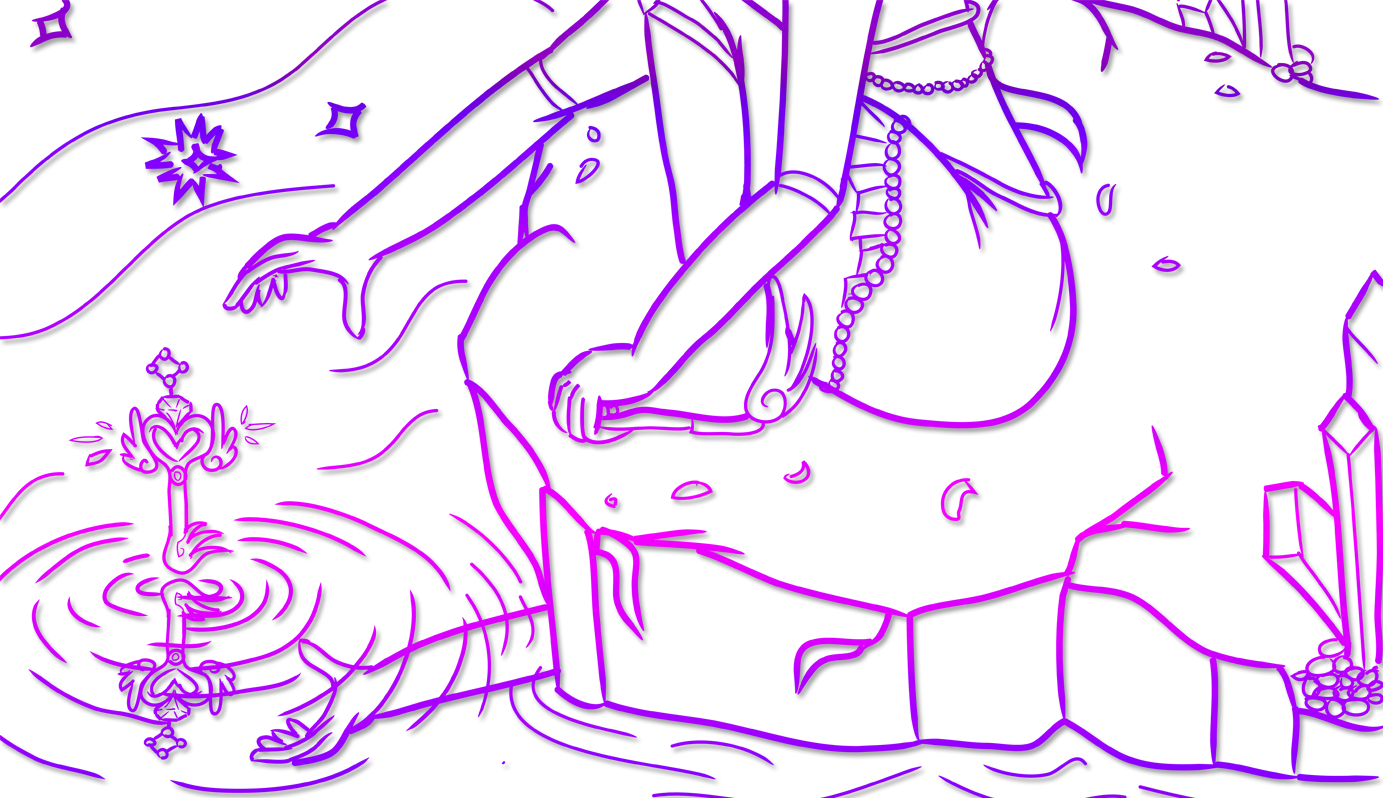Obviously, spoilers ahead if you have not completed the game Earthbound/Mother 2.
Proceed with Caution – You have been warned!
Dialogue
Giygas as a fight is heavily influential on the player in many ways we’ve already discussed. But part of what makes Giygas influential is he makes you as the player think about the after. I’m sure I’m not alone in thinking “what if…” and “what did it mean…” after the fight, as there’s many blogs much like this.
Giygas’s dialogue is one of those many areas where we question what’s happening. Those familiar with the game’s background know the dialogue of Giygas is taken from “The Military Policemen and the Dismembered Beauty” and that Itoi believed the dialogue to be describing a rape (in actuality the scene is lovemaking turned to murder). Itoi also stated he wanted to bring “living being” sensation to Giygas with these lines – with lines such as “it hurts” when he considered the terror and eroticism. This begs the question though – if Itoi meant to simulate these feelings with Giygas’s dialogue…is Giygas meant to be erotic? What does that mean in this context?
I would argue that eroticism does not mean it’s classical definition in this sense. Rather, I harken back to Itoi stating that when he saw the sequence in the movie, it was “a direct assault on his brain” – sounds quite similar to “you cannot comprehend the true form of Giygas’s attack”. I believe the portrayal here is not eroticism in a sexual sense for the player, but anticipation and confusion coupled with terror, a mixture of unsettling and exciting and enticing toward completion despite reservations to turn back due to the unsettling nature.
I also believe that the living sensation Itoi describes is precisely why Giygas’s dialogue is so unsettling. Up until this point we have assessed Giygas as an abstract representation of purely unfettered negative emotion. And yet…he speaks as though human. He says “it hurts”. He says “I’m happy”. This confuses the representation of Giygas that we’ve been presented with – we see abstraction with no face, only evil, and yet it seems capable of more emotion. The confusion raises questions. What are we doing? Is this right? What does Giygas mean? We become unsettled. Our interpretation no longer matches reality.
I think that not only does the player feel this unsettling and enticing feeling, but Giygas does as well. Considering Mother’s representation of Giygas – as Giegue, fostered by Maria and George. Giegue has a moment of “weakness” – he feels compassion for Ninten as he felt compassion for Maria, and in turn, this may have caused his downfall. Earthbound’s representation of Giegue going fully “dark” – removing his body and mind to further his cause…we are led to believe that all of Giygas’s rationale and emotion have been removed.
But when we watch the dialogue and the battle unfold, something intriguing happens. It’s almost as though Giygas is regaining his understanding of the feelings he had to suppress as Giegue, trying to rationalize and make sense even as it draws him closer to defeat. It’s almost as though Giygas becomes excited at these revelations, but scared of what they mean. As though Paula’s prayers are speaking to the part of him he worked so hard to hide as Giegue, to the point of destroying himself in order to try and stifle them.
Consider what Giygas says through this lens:
“I’m happy” : Giygas is recognizing the end is near, but also recognizing and accepting the emotions he has tried to stifle. They make him happy, his love for Maria and Ninten, even if it wasn’t acceptable in the Starmen’s eyes, they made him happy. The prayers, the chance to be put to rest, it excites him and allows him to feel the way he wanted to feel.
“I feel good” : Again, the same recognition. Even though the recognition of these feelings is literally causing Giygas to self-destruct, the destruction of himself feels good because it allows him to finally feel happy the way he desired to be, and also he recognizes that his removal from the world may allow Ninten and Maria’s descendants to continue to live on where his existence may have destroyed them. This makes him feel happy, and his sacrifice makes him feel like a “good guy” – he feels, quite literally, good.
“It Hurts” : Giygas can feel these thoughts and recognition of the prayers destroying his essence. Quite literally, it hurts. However, he tends to couple this with “I’m Happy” or “I feel good” as though saying “even though it hurts, I am okay with this”
“I’m so sad” : Giygas is happy that he can finally recognize and feel the emotions he desired, but it is too little too late. He is sad that he has to leave this world in order to be finally allowed to feel them. He is melancholy. He is scared, but excited; worried but wondering.
“It’s not right” : It’s not right what he’s done. It’s not right what the Starmen taught him. It’s not right that he couldn’t feel the way he desired to feel around Maria or Ninten. It’s unjust and unfair that despite his best attempts to stifle his emotions, this final battle has caused him to realize they are okay, only to also have him recognize this means his demise.
*Pain sounds* : Related above to “It Hurts” – Giygas recognizing tangible emotion and feeling, and responding as though he is actually in pain despite being a manifestation of abstract thought. He is recognizing a range of feelings, and reacting as his physical self would.
“Ness” : Attempting to convey these thoughts to Ness, to get him and his friends to recognize what is happening. To know he is not alone even in the desolation he has created, to recognize who is there with him as he reaches the pinnacle of a journey that ends in his destruction. To ensure his final words and feelings do not fall on deaf ears, as Paula hoped her prayers would not: “Ness”.
Consider how each of Paula’s prayers cause the representation of Giygas to fracture and distort further and further ,while this dialogue continues to loop. Paula’s final prayer before reaching to the player’s heart “is consumed by the darkness”. From there, Giygas becomes fatally wounded. Paula’s final prayer, quite literally, seems like it was consumed by the darkness – the all surrounding darkness that is Giygas. As each of Paula’s prayers distorted his perception and made him unbundle his repressed feelings further and further, the final prayer before the one causing his demise was heard and absorbed squarely by Giygas himself.
He recognized the need for his end in Paula’s prayer that hits him directly as it is consumed by the darkness. His emotions exciting and terrifying him, he finally realized even through his attempts to stifle his feelings for humanity that the best course of action was his own destruction.
The final prayer is the player’s prayer, and this causes Giygas to finally self destruct. If we take this into account with the representation of Giygas thus far as the player’s nightmare and the player’s perception, then the player’s hope is the final piece that Giygas needs to recognize that his time must end. Giygas recognizes his compassion for humanity, and the player affirms it with their hopes and desires.
Giygas’s dialogue and the confusion it causes makes many players wonder if fighting Giygas is “right” – that is, is Giygas truly evil, and has the player at the end of the fight destroyed a non-evil thus making them less of a protagonist than they’ve believed?
I would argue that, if we follow the rationale we’ve established so far, the only way for Giygas to realize the non-evil within him was to confront him in the way the player does. The prayers wounded Giygas, but only in so much that they fractured his perception of the abstraction he had made himself – in this way, Giygas is destroying Giygas at his own realization based on the prayers, not the player themselves.
Giygas has destroyed his sense of self down to a level of purely intangible representation in an attempt to be the destroyer the Starmen desired, and when the prayers fracture this representation, Giygas cannot come back to tangible with this new found knowledge or desire – it shatters the core of the being he has become. While he is happy with this knowledge, it also forces an inevitable destruction. I would argue that while Giygas wishes that he could return to the world with this insight (“I’m so sad”), he’s thankful that the player allowed him to have this revelation, and is happy to have the story end in this way, stopping his potential destruction even if his turning to benevolence causes his own demise (“I’m happy”).
You cannot grasp the true form of Giygas’s Attack! – Final Battle, Earthbound
EarthBound copyright Shigesato Itoi, Nintendo, HAL Laboratory and Ape Inc.



